Have you noticed that your chicken’s water bowls are freezing over during the colder weather? Perhaps they’re freezing overnight, or you’ve noticed a layer of ice forming on the water surface. Don’t worry – there are many simple things you can do to help prevent your chicken water from freezing.
I use a blend of the different techniques I outline below, depending on how big the troughs are, and how often I’m home during the day.
Like all of our friendly pets and backyard animals, chickens need ready access to fresh clean water. During the warmer months, this isn’t a problem, but what happens when the temperature drops? There are a few really simple things you can do to help prevent your water bowls from freezing solid.
Change the water during the day
This is the oldest trick in the book. It works very well if you have smaller water containers. In the morning, fill your first bowl with water and leave it in the chicken run. At least two or three times a day, you can swap it for another fresh bowl.
Some people choose to use flexible containers like foil trays, so they can bend and drop the ice onto the ground. Others prefer to bring the frozen tray inside to thaw, and then take it back outside later on.
The weather and your available time will impact how often you need or want to do this. It’s a good idea if you’re home during the day but may not be practical if you work outside the home.
Float ping pong balls in the water
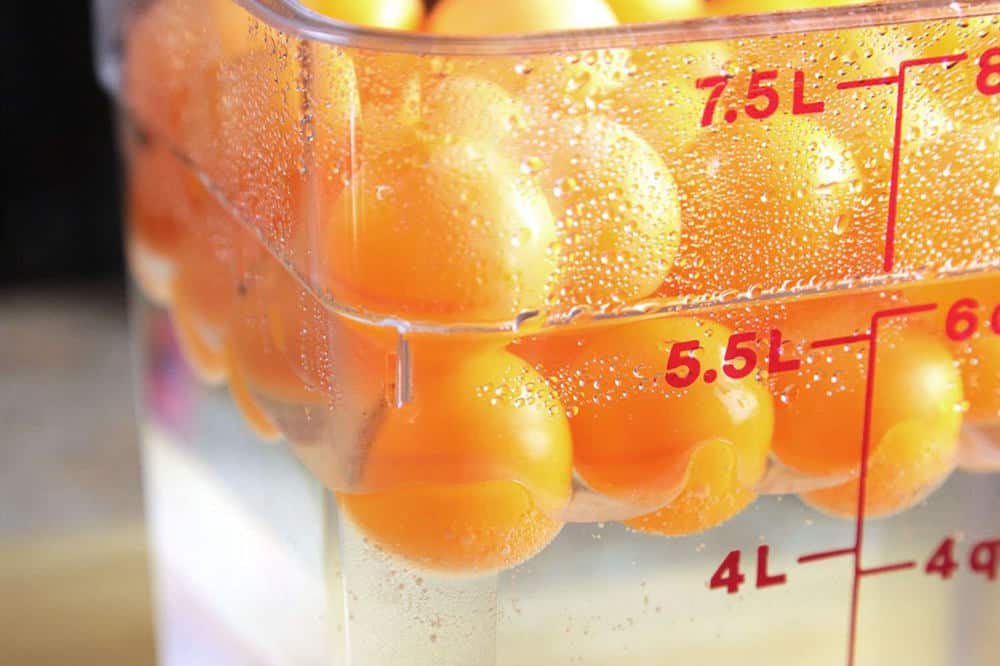
This is another trick for water troughs that aren’t very big. Ping pong balls float on the water surface. This breaks the tension on the surface and can slow the freezing process down. It won’t prevent it completely but it can buy you more time between water changes.
It works because the wind moves the ping pong balls around. When the chickens take a drink they’ll also disturb the balls. This movement keeps the water from getting cold enough to freeze. It won’t work if there is no breeze, if the temperature plummets quickly, or if you’re not able to check on the water at least once a day.
Salted water bottles
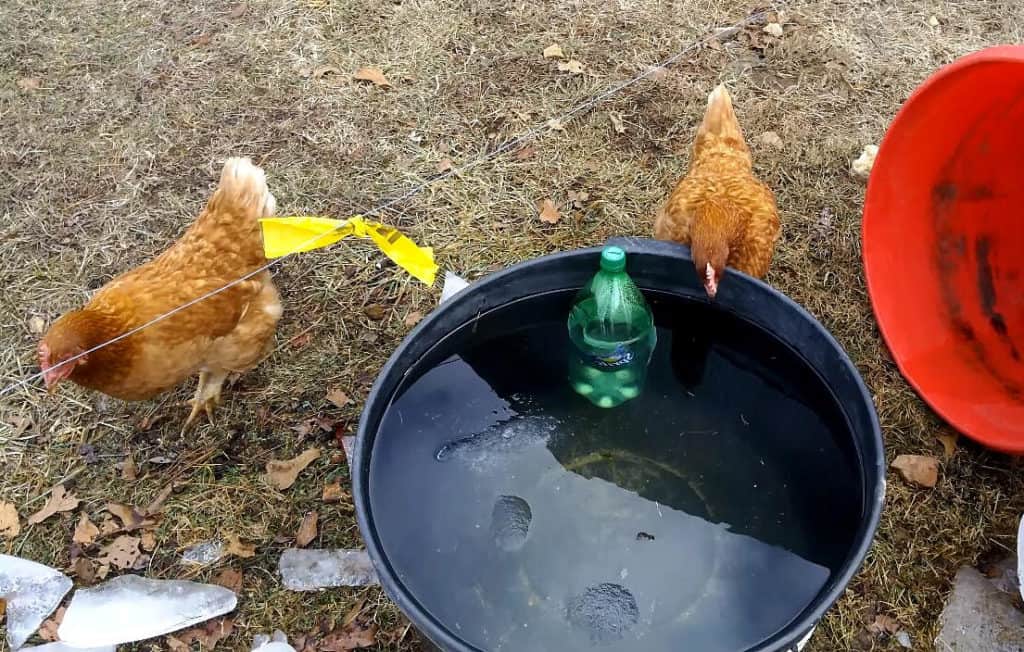
Do not add salt to your chicken’s water trough! It’s true that salty water (brine) is much slower to freeze compared to fresh water. Your chickens can get very sick if they drink salty water, but there is a way to use salty water to your advantage.
If your water trough is large enough, you can use large plastic soda bottles. If your trays are smaller, use smaller bottles. It’s important that the bottles are plastic. Metal and glass transfer colder temperatures much faster than plastic.
Make up a brine solution and fill your bottles with it. Then, float the bottles on the surface of your chicken’s water trough. This works in a similar way to ping pong balls, but the size of the bottle will help create a lot more movement on the water’s surface.
The salted water will be much slower to freeze, so it will move around and delay the coldest temperatures reaching the water straight away.
This is a very useful trick if you have larger water troughs, as ping pong balls alone won’t provide enough disturbance over a larger area. Your chickens will also learn that the ice is weakest where it begins to form against an edge, so having the large bottles will provide wider edges for them to exploit.
Breaking up the ice
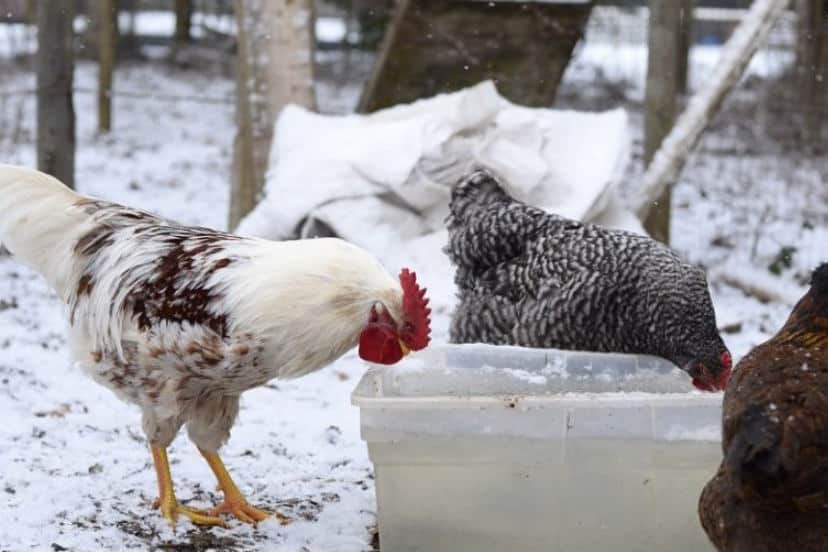
This method is about as laborious as changing the water bowls two or three times a day, but it might work for you. Go and check on your flock regularly and break up any ice that’s formed on the surface of your water troughs. You might like to remove it to prevent it cooling the remaining water faster.
Using boiling water
If you keep a woodfire burning throughout the colder seasons, this tip might be an easy one for you. Keep a pot of water on the fire, or otherwise find a way to boil it. Take the hot water out to the trough and pour it over the surface ice.
This will defrost the ice in no time, and it won’t hurt your chickens. This is because the boiling water will quickly thaw the ice and mix with the cold water underneath. You can be sure that the water isn’t too hot by mixing the water together with a spoon or a stick. You can also use your skin to test the temperature of the water but be careful!
Electric water heaters
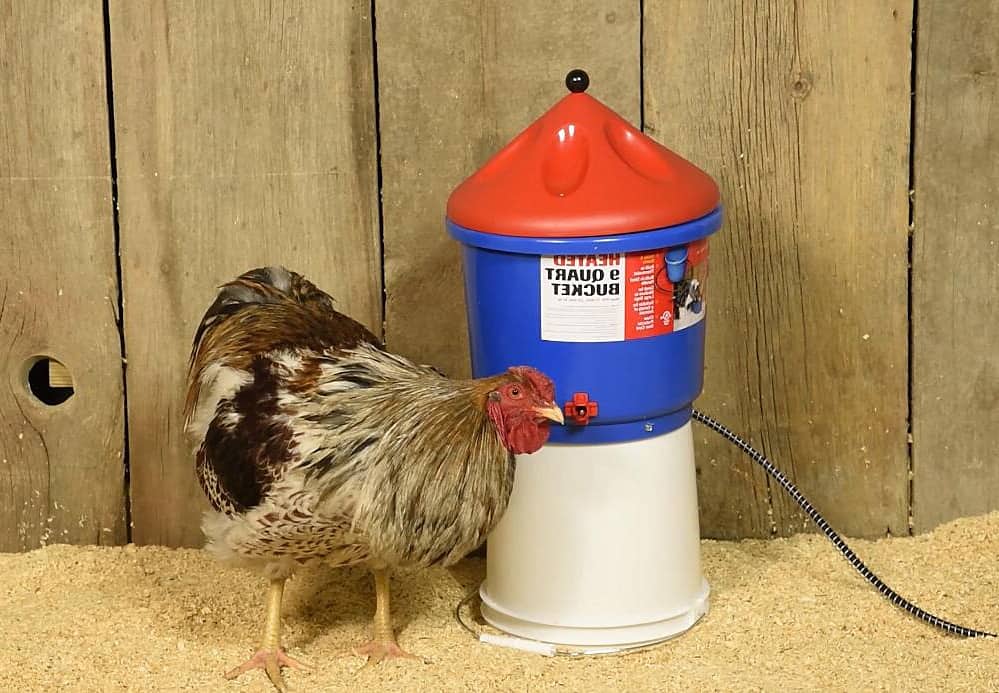
Also known as heated chicken waterers, these electric devices keep your chicken’s water liquid no matter the temperature outside. They connect to your electricity supply so you’ll either need power at the coop or be willing to run an extension cable out to it.
Heated chicken waterers do use a lot of power, so you will need to consider whether convenience or cost is more important to you. Some do use a thermostat, so it will only turn on when the water begins to freeze.
There are many different styles of heated water dispensers. Some use nipples to drip feed water to the chickens, while others warm the bowl the water sits in. One style is similar to a hot plate – you rest your bowl on top and the heat conducts through it. This is one time a metal bowl is preferable to plastic.
You may like to experiment with them to see which suits you and your girls the best.
A slightly cheaper option may be to buy a dog’s heated food bowl. They may not work in quite the same way as chicken water heaters but the result will be much the same.
Use larger troughs
If you want to prevent your chicken’s water from freezing over in winter, you may need to change the vessel you choose to serve the water in. Plastic troughs are best, as I mentioned earlier, it conducts colder temperatures less easily than metal.
Larger surface areas take longer to freeze over compared to smaller ones. Deeper water also takes longer. Experiment with replacing your current troughs with larger, deeper ones. You could combine this strategy with ping pong balls or salted water bottles for extra security.
Heat the coop and keep your water inside
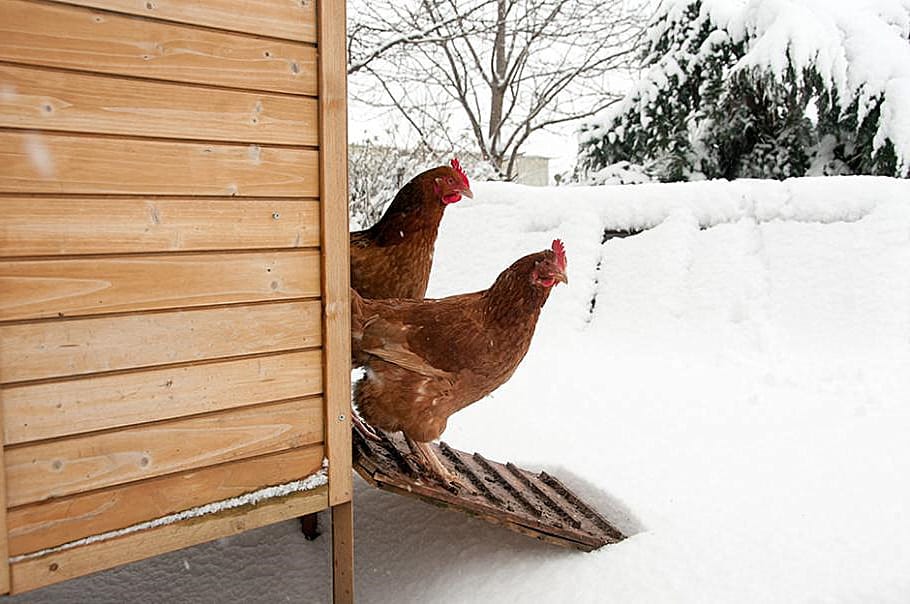
This tip only works in certain circumstances. Depending on just how cold it gets where you are, you may need to give your girls a bit more help to keep warm. Chickens can stand cold weather well enough, but deep freezes can potentially kill them.
If you live in an area that has dangerously cold or prolonged freezing spells, you might like to try heating the chicken coop itself. This will likely mean insulating it and installing heaters. It will keep the girls warm and safe.
If you do this, be prepared to face a higher than average power bill. Some people install electric heaters while others use heat lamps. Assess your coop and decide which will be the safest option. Remember that straw and wood shavings have the potential to be set alight by radiant heat.
If you do decide to warm your coop and prevent your girls from wandering outside in the cold, it makes sense to keep a water source inside the coop. It will encourage them to stay inside where it’s warm, and the ambient temperature will help prevent the water from freezing.
Keep in mind that your flock may spill the water onto the surrounding nesting areas if your coop is small. You might need to pay extra attention to the cleanliness of the coop if you’re keeping food and water inside, even for brief periods of very bad weather.
Wrap Up
When we decide to bring chickens into our lives, we take responsibility for their welfare, health and happiness. This means going the extra mile for them when the weather is cold. Here’s a summary of my top tips for stopping your chicken water from freezing over.
- Change the water two or three times a day
- Use boiling water to melt ice and raise the temperature of the drinking water
- Float ping pong balls on smaller troughs to break the surface tension
- Float bottles of salted water on larger troughs to prevent rapid freezing
- Chicken water can be heated using warming bowls, heat pads and other dispensing devices
- Larger troughs will freeze slower than smaller ones
- The coop itself can be heated, and water can be kept inside
Can you share the ways you keep your chicken water from freezing over? It’s a chore no doubt, so any helpful tips you’d like to share will be appreciated by me and every other reader in our community!

Joseph Hudson has been raising chickens for over 15 years. In 2018, he completed the Agriculture & Natural Resources program at Mt. San Antonio College. He currently raises over 1400 chickens on his 7.5-hectare farm. He keeps sharing his experience on raising healthy and happy chickens on Chicken Scratch The Foundry.
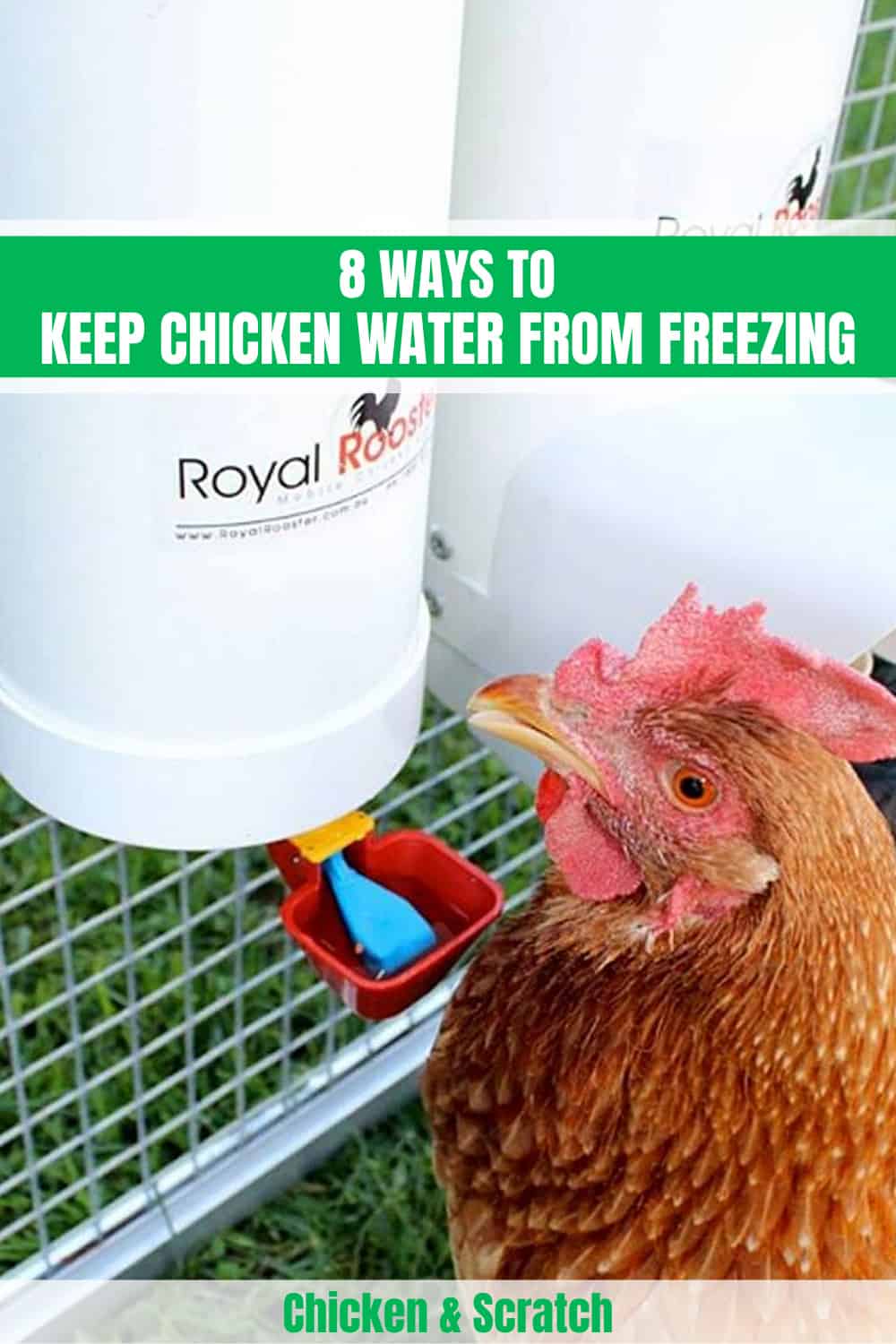
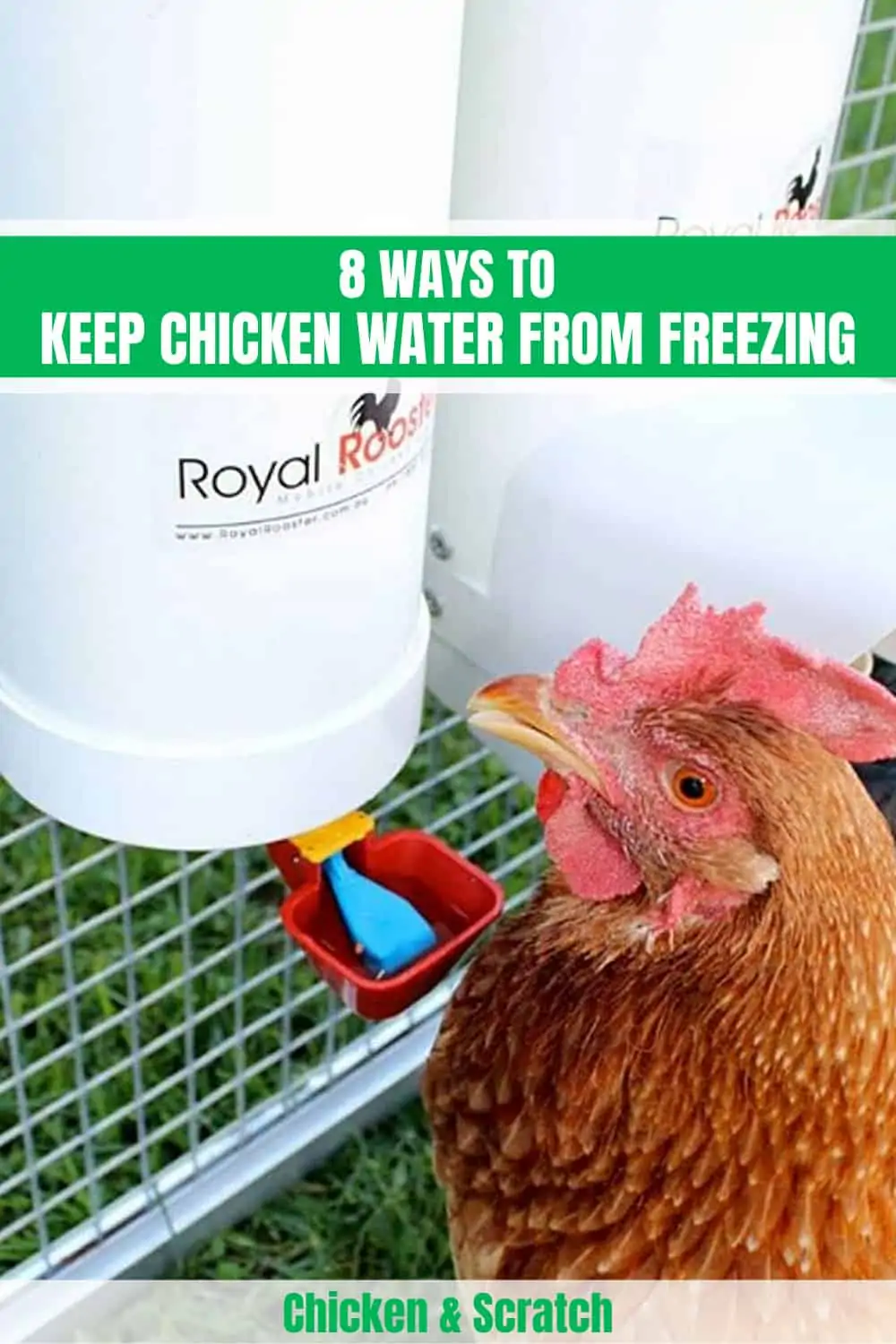







Lots of great ideas! I plan to try the container of salt water in the waterer.
Last year I purchased a heated waterer. I didn’t like it as the bottom trough part came apart from the top too easily and I couldn’t hang it up in the coop as it would leak out of the bottom…I returned it after two weeks of frustration. This winter, I’m going to try using a reptile tank warming pad to put under the waterer while placing it on top of a few boards so it’s not directly on the ground. or I may hang the new waterer in the henhouse with a heat lamp. The problem is that the hens don’t seem to know where to find their water when I put it in the henhouse! lol
The galvanized steel bucket is freezing overnight so that’s not working too well. I like Terri’s idea of a warming pad under the bucket; we do have an electric cable in the coop, and they enjoy a heat lamp at night already. I have a warming pad I used to make kombucha; will have to verify the pad is waterproof however.
Buy a 6′ heat trace cable, place it inside the 5gl pail, the cable has termosta buil in it. Just plug and make sure the cable is evenly arranged in the bucket, closet to the outer wall is better. I’ve been using it for about 8 years, no issues. You need to buy the drinking cups that you screw into the bucket, not sure what it’s called.
Anybody used a bird bath heating element in the water container?
I’ve used one for three years. I cut a hole in the bucket lid to run the cord thru and set the bucket in a wire flower pot holder. I’ve been using the type of watered that goes under the bucket but want to try the ones that are like a cup and fit on the side.